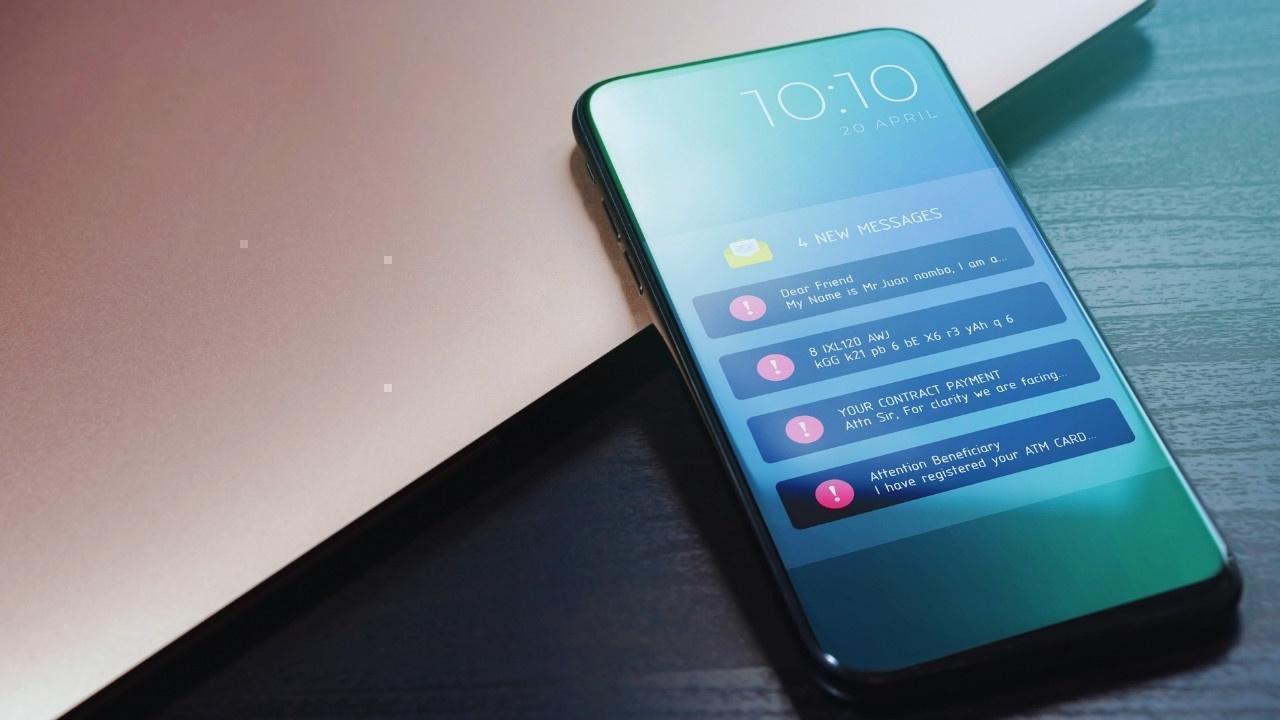You have not yet added any article to your bookmarks!

Join 10k+ people to get notified about new posts, news and tips.
Do not worry we don't spam!

Post by : Anis Farhan
Digital transactions have become ingrained in daily routines. With UPI, QR codes, and online shopping, moving money is incredibly efficient. However, this convenience has opened avenues for increasingly sophisticated scams. Gone are the days of the stereotypical “unknown caller.” Scams in 2025 are customized, rapid, and psychologically manipulative.
The issue isn’t carelessness; it's that modern scams are crafted to appear authentic. Official-looking messages, well-trained callers, and mimicked legitimate websites make it easy to fall victim. Even tech-savvy users have incurred losses simply by recognizing the threat too late.
This article sheds light on contemporary scam formats, essential warning signs, UPI and OTP safety protocols, and simple daily practices to construct a formidable barrier against digital fraud.
UPI is increasingly used for transactions ranging from casual street food purchases to significant rent payments, providing scammers ample opportunities.
Scammers are employing realistic logos, templates, proficient language, and plausible instructions to deceive.
Your personal details, like your name and number, may have already surfaced from past breaches.
The immediacy of UPI transactions complicates money recovery once it’s transferred.
Scams thrive on urgency:
Your package is delayed
Update your bank account
Your SIM is at risk
Your refund is in limbo
Act fast or face consequences
As urgency escalates, awareness often diminishes.
Recognizing these dynamics enables you to remain calm rather than react impulsively.
Every scam seeks to rush you.
Every legitimate situation allows for reflection.
Urgency is a significant warning sign.
Scammers may instruct you with a QR code stating:
Scan this to claim your funds.
Reality check:
QR codes only facilitate sending, not receiving.
If anyone asks you to scan a code to receive money, it's a scam.
You may receive payment requests insisting:
Accept for a refund
Approve for cashback
Click to claim a reward
Accepting these often deducts funds from your account.
Scammers impersonate representatives from:
E-commerce support
Food delivery services
Wallet providers
Airlines
Financial institutions
They may request your UPI ID or ask you to install remote access apps. Legitimate refunds will never ask for your PIN or remote access.
These often involve minor initial payouts to build trust, later luring you to invest more for potential earnings.
These schemes are essentially financial traps.
You receive an OTP you didn’t ask for.
Shortly after, a call claims it was sent in error.
If you divulge it, they may access your account or change your password.
Alerts appear informing you:
Your account faces suspension
Update KYC to evade restrictions
Revealing OTP allows scammers to seize your account.
If fraudsters access your OTP, they can initiate SIM reissue.
This could halt your phone service and allow access to banking apps.
Never provide OTP to anyone, no matter how familiar they seem.
Scam links can appear almost identical to legitimate ones.
Frequent cases include:
Imposter courier tracking
Fake tax payment interfaces
Spurious electricity bill portals
Fraudulent bank verification forms
Bogus social media login notifications
These links solicit:
Credit card information
UPI PIN
Passwords
Personal identifying information
Stay wary of links from unknown entities, especially those requesting urgent action.
Scammers assume the identity of reputable brands and offer attractive contests.
They often create a push for QR codes or demand upfront payments.
Creating emotional bonds, they seek financial aid from unsuspecting victims.
Friends or family may request emergency funds, but always double-check by calling.
Social media fraud thrives on manipulated trust.
Requests for OTP
QR codes promised for received funds
UPI requests for payments
Urgent callers
Unusual link spellings
Non-official numbers
Agents seeking screen-sharing software
Job offers needing deposits
Prize claims demanding payments
Fast lottery winnings
Messages about accounts being blocked
UPI refund approvals required
If something feels pressured or too tempting, it’s likely a scam.
It should never be required to receive funds.
Scrutinize every transaction.
Always cross-check the recipient’s name.
Be cautious, as even publicly displayed codes can be manipulated.
Refrain from using unauthorized third-party apps.
Stay secure as banks regularly fix vulnerabilities.
Safety relies on habits, not fears.
Be it from banks, telecom providers, or delivery services, always keep it confidential.
This minimizes exposure if your device is misplaced.
Avoid weak passwords, as they can heighten dependency on OTPs, increasing risk.
Skip random third-party verification systems.
Your OTP serves as your digital signature—never share it.
Purchase exclusively from recognized sites
Avoid deals that seem unrealistically good
Double-check URLs
Prefer using UPI or credit cards for safer payment options
Don’t react to unverified “Order Failed” notices
Track shipments using official channels, not forwarded links
Stay vigilant—scammers leverage convenience.
Keep personal information private
Decline unsolicited message requests
Verify before transferring money to acquaintances
Avoid sharing real-time travel updates
Don’t store sensitive files in chat applications
Be wary of random polls or giveaways
Your data is valuable. Safeguard it.
Resist apps requesting unnecessary permissions.
SIM locking offers protection against unauthorized swaps.
One leak shouldn’t endanger everything.
Being proactive can prevent significant losses.
Such apps are frequently exploited by fraudsters.
Instant alerts can quickly reveal unauthorized activities.
Cease all communication immediately
Block the suspect’s number
Change your passwords
Freeze your bank accounts via the mobile app
Report to your bank’s fraud hotline
File a report on national cybercrime portals
Alert family members to avoid falling prey
Quick intervention can minimize harm.
Fraudsters exploit human behaviors:
urgency
trust
fear
confusion
emotional stress
Technology aids in protection, but awareness is your greatest safeguard.
By recognizing patterns, you can swiftly identify scams.
Digital life in 2025 thrives on convenience, immediacy, and constant connectivity, but these elements also introduce vulnerabilities. Today’s scams appear polished, urgent, and authentic, making awareness your most vital defense.
Follow these straightforward guidelines:
Never disclose your OTP.
Do not input your UPI PIN to receive money.
Avoid scanning unknown QR codes.
Steer clear of urgent communications.
Do not click on unfamiliar links.
Stay vigilant, stay educated, and treat every unsought digital communication as a potential threat. Security comes not from paranoia, but from awareness and steady confidence.










Denmark Cautions NATO's Stability Threatened by US Moves on Greenland
Denmark's Prime Minister warns NATO could collapse if the US attempts military action in Greenland a

Agastya Nanda’s Ikkis Sees Box Office Decline on Monday
Ikkis earned Rs 1.13 crore on its first Monday despite strong opening, facing tough competition from

Lakshya Sen Wins, Malvika Bansod Loses at Malaysia Open 2026
Lakshya Sen advances to second round at Malaysia Open, while Malvika Bansod exits early after return

Nvidia's CEO Introduces Vera Rubin AI Chips Promising 5x Performance Gains
Nvidia has officially launched its Vera Rubin AI chips, aiming for faster chatbots, reduced costs, a
Avatar: Fire and Ash Surpasses $1 Billion Globally
James Cameron's latest installment, Avatar: Fire and Ash, has crossed $1.03 billion worldwide, showc

Canada Opens Skies to Middle East Airlines, Raising Competition Bar
Canada is expanding flight access for Saudi and UAE airlines, increasing competition and pressuring